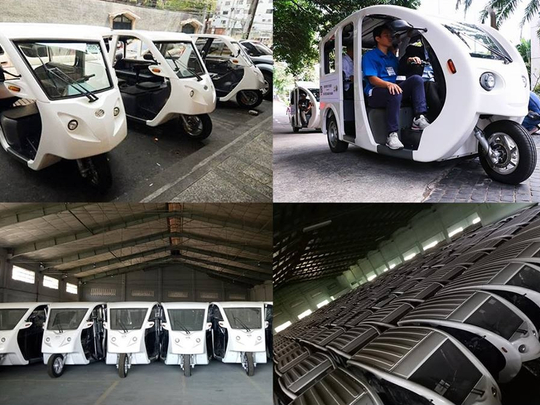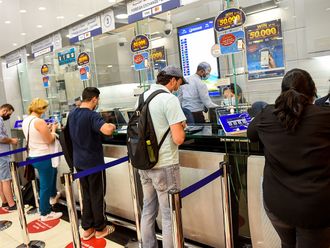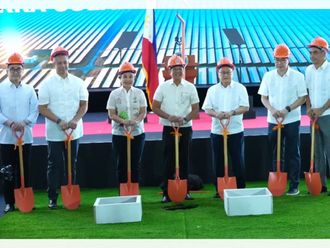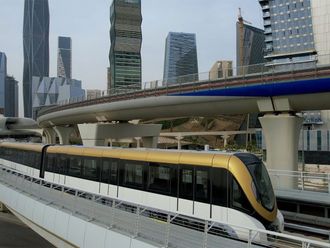
Manila: Starting this month, a total of 900 “e-Trikes” will be plying the streets of the four Metro Manila cities under a government programme to transition towards “cleaner” transport alternatives.
“The Department of Energy (DOE) e-Trike is a project that encourages the transition from oil to cleaner sources of energy,” Energy Secretary Alfonso Cusi said.
Under a programme funded by the Asian Development Bank, an initial 900 units of the e-Trikes will start plying the side streets of Las Piñas, Muntinlupa, Pateros and Valenzuela.
“The DOE E-Trike is a project that encourages the transition from oil to cleaner sources of energy,” @doe_ph Secretary Alfonso Cusi said.
— Flying Ketchup (@FlyingKetchup) June 2, 2018
Ang nakakuha ng e-trikes ay ang Las Piñas, Muntinlupa, Valenzuela, at Pateros. #GoingGreen #BetterPhilippines
Story: https://t.co/1EzFVz33pW pic.twitter.com/HOIHLggQPV
The three-wheeled electric vehicles are aimed at replacing petrol-powered ‘traysikel” (tricycles) that have ruled the Philippines’ side roads for decades.
Earlier versions of the electric-powered vehicle had been in use for some time in Metro Manila’s Mandaluyong City.
“The 900 units to be given to the four cities will benefit many communities, in terms of livelihood and services that it can provide to the people,” Cusi emphasized.
During the 1970s-traysikels started to proliferate in the country as part of the energy crunch at that time which made petrol prices more costly.
Later on, Philippine emission laws forced the transition from the two-stroke engines more common to the traysikes at that time, to more economical to operate and less polluting four stroke internal combustion engines.
Nevertheless, studies found out that traysikels had remained as among the top sources of air pollution in the country.
Compared with the gas-fed traysikel, the e-Trike had gone far in terms of advancements.
Traysikels as cheaper to run compared to four wheel vehicles like jeepneys.
The e-Trikes run purely on electricity. All that the owner needs to do when its battery charge is exhausted is to plug the vehicle to a wall mains or any household power distribution outlet. Last January, the energy department donated e-Trike units to the conflict-ravaged city of Marawi in Lanao del Sur.
The donations form part of the energy department’s joint programme with the Asian Development Bank called the Market Transformation through Introduction of Energy Efficient Electric Vehicles (E-Trikes) Project.
Under the programne, 3,000 e-Trikes had been completed and ready for deployment within the first half of the year.












